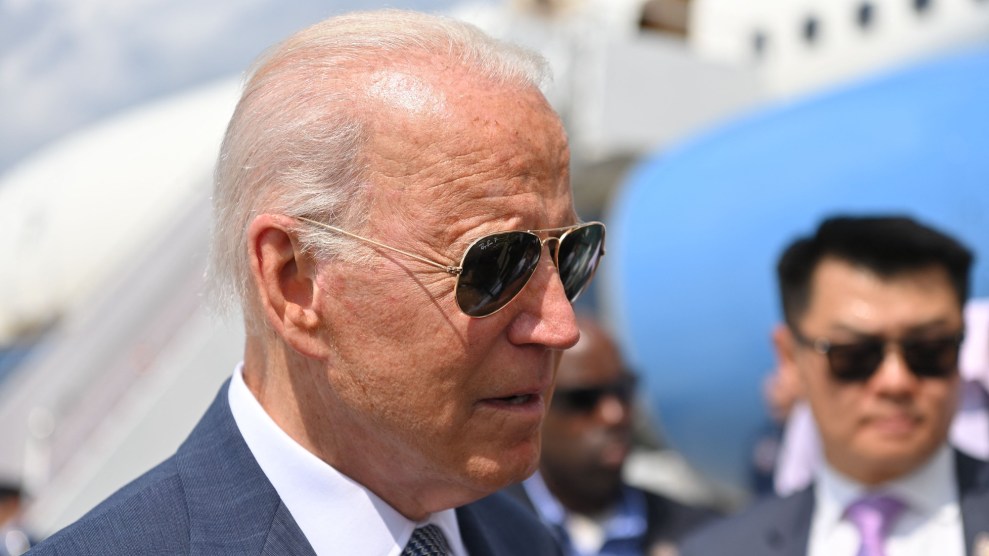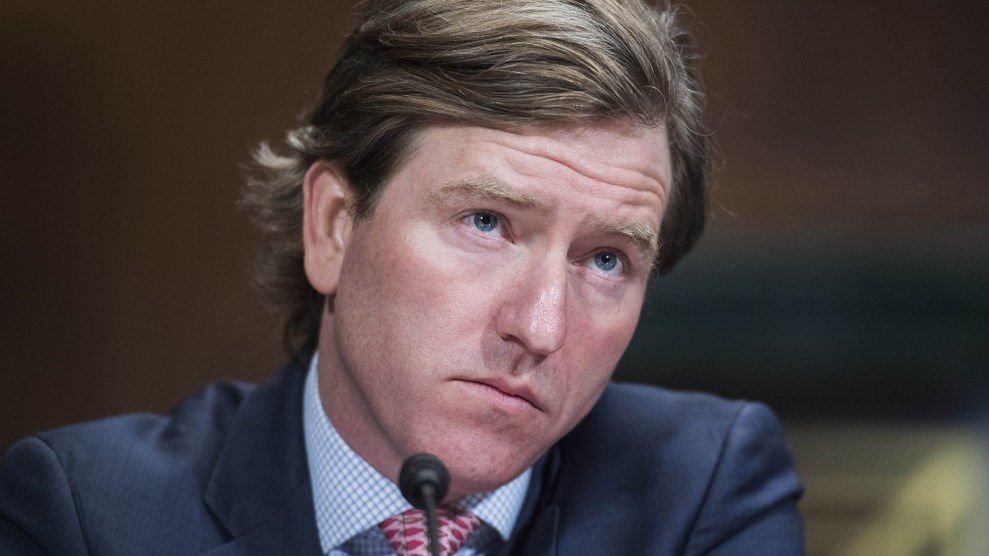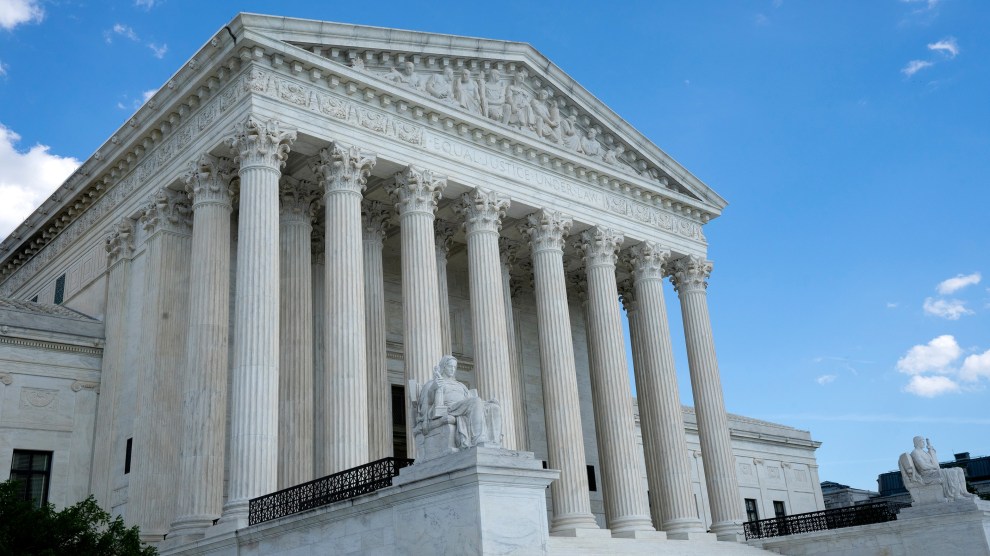
Mandel Ngan/AFP/Getty
On Friday, Joe Biden fired Social Security Commissioner Andrew Saul, a Trump administration appointee who had clashed with congressional Democrats and disability rights activists. Originally appointed by Donald Trump in 2018, Saul’s term was set to last until 2025.
Historically, heads of independent federal agencies like the Social Security Administration have been spared from being turfed out when new presidents take office. Indeed, in an interview with the Washington Post that foreshadows a potential battle over his dismissal, Saul, a former college classmate of Trump’s at the University of Pennsylvania, defended his tenure and said he still considers himself “the term-protected commissioner of Social Security.” He added that he plans to report to work on Monday.
While federal law says that the Social Security Commissioner can only be fired for cause, recent Supreme Court rulings have strengthened Biden’s ability to oust independent agency leaders as he likes. Last year, in a case brought during the Trump administration, a conservative majority of the Supreme Court ruled that Congress’ mandate that the president only be able to fire the head of the Consumer Financial Protection Bureau “with cause”—and not “at will”—was unconstitutional. The issue arose after the Obama-appointed CFPB director, Richard Cordray, resigned to run for governor of Ohio, kicking of a complicated legal- and power- struggle over the agency’s leadership.
Under that ruling, Biden was able to replace Trump’s permanent CFPB director shortly after entering the Oval Office. Last month, the justices ruled that the president can similarly fire the head of the Federal Housing Finance Agency without cause, clearing the way for Biden to quickly replace the Trump holdover leading that office.
In the wake of Saul’s dismissal, the White House told several news outlets that his actions, including a decision to terminate the agency’s telework policy and an adversarial stance toward unions, “run contrary to the mission of the agency and the President’s policy agenda.”
The dismissal has not come free of criticism from ethics watchdogs. Walter Shaub, a former director of the executive branch’s Office of Government Ethics and a senior fellow at the nonpartisan Project on Government Oversight, said that by citing the CFPB case’s precedent, the Biden administration had “sided with Trump” and the Supreme Court’s Republican-appointed justices. “I hope the White House clarifies that the firing was for cause and not a constitutional challenge to the law requiring cause,” he tweeted.
Mitch McConnell, who never seemed too upset about Trump’s expansive use of executive authority, quickly pegged Biden’s move “an unprecedented and dangerous politicization of the Social Security Administration.”
















